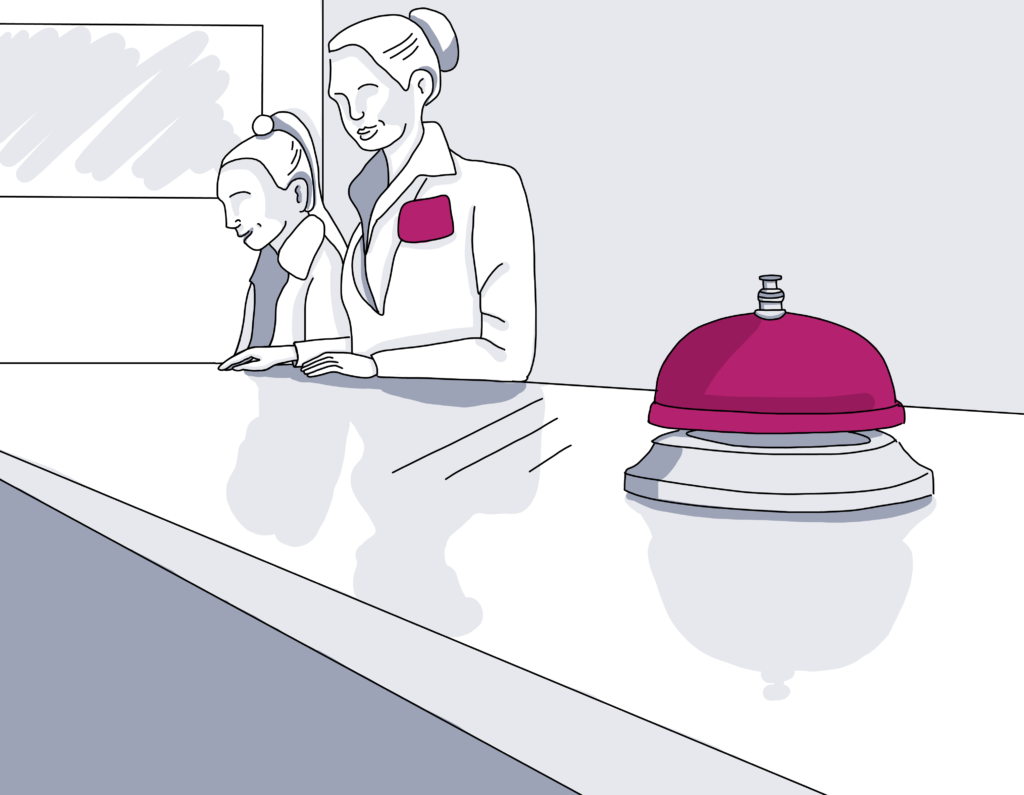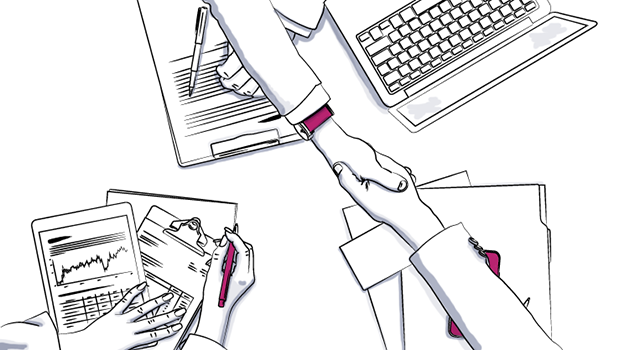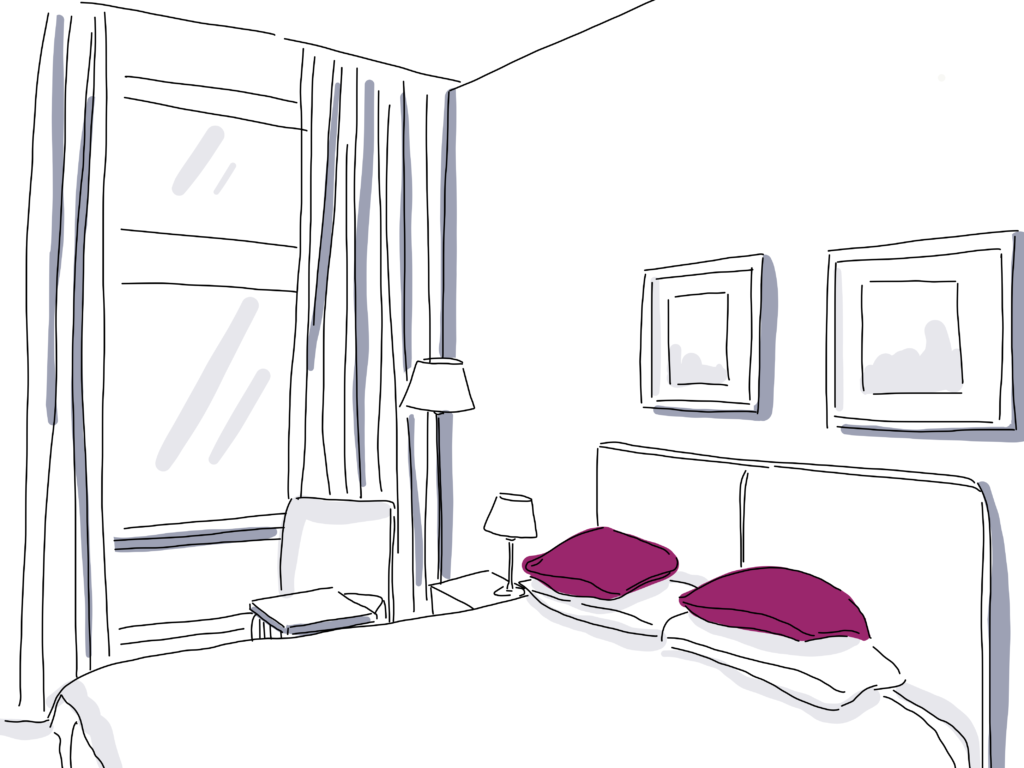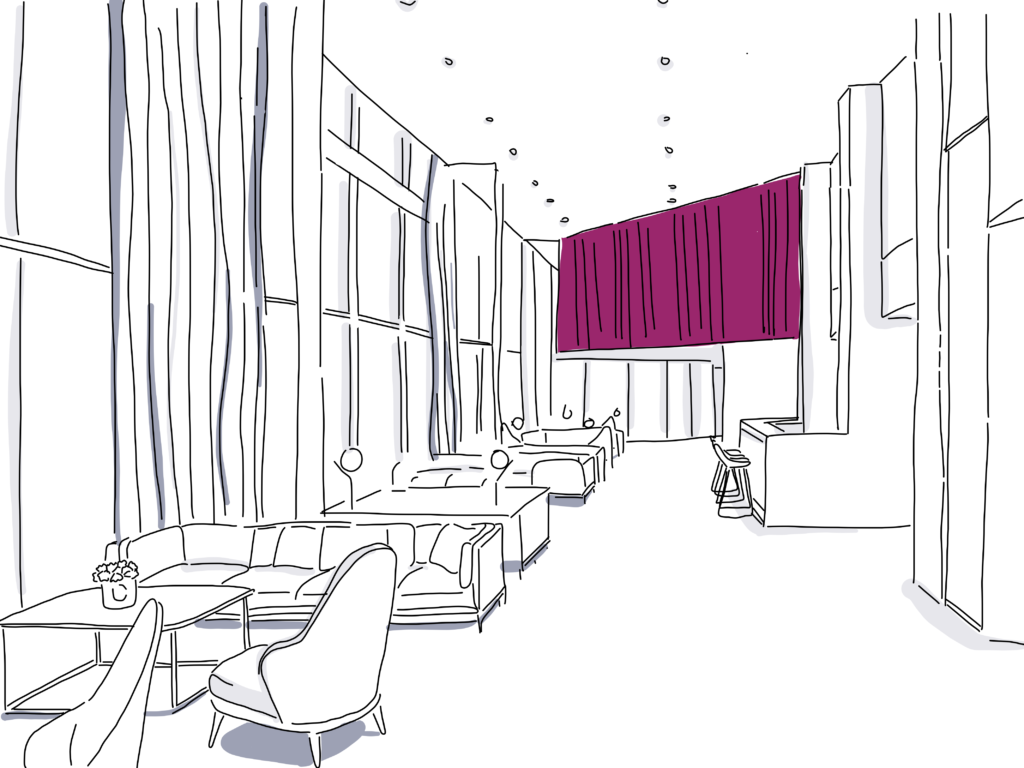
17 Ways Tech Can Solve Common Hotel Customer Service Headaches
Today’s hotel guests crave convenience, automation of pretty much everything, and an experience built around them. Tall order, right? Not with the gift of modern tech at your disposal. Read on for our top 17 ways tech can solve the most common hotel customer service headaches.
[Tweet “Today’s hotel guests crave convenience, automation, and an experience built around them.”]
17 Ways Tech Can Solve Common Hotel Customer Service Headaches
Whether you’re looking for a device or an app, there are plenty of ways modern technology can fix these everyday hotel customer service issues.

1. Help guests play and/or rest exactly when they want to
Noisy neighbors are one of the top complaints hotel guests have. And while you can’t completely control the behavior of some occupants or architectural malfunctions, you can control how you help them. And that’s where sound masking devices come in. Specifically designed for hotels, these simple devices are user-controlled. Which means your guests can change the level of their sound masking device depending on the severity of the issue.
They are exactly what their name implies – devices that mask (not eliminate) sound. Most devices use a soft blowing sound to neutralize other, less pleasant noises. They’re more advanced than white noise machines, although they are a touch more complicated to install.
Still, sound masking devices designed specifically for hotels make for excellent customer service. Especially since guests have complete control over it.
2. Let rushed customers skip the line
Flight delays, traffic, and bad planning leave guests feeling stressed out before they even arrive at your hotel. Once they arrive, the goal should be to help them get check in and relaxing in their room as soon as possible. Which is why self check-in kiosks are becoming a must have for hotels who want to boost their customer service strategy.
Even though live front desk agents are still a necessity for hotels, self check-in kiosks work for guests who just need to get into their room as quickly as possible. Companies like Agilysus now offer technology that can look up reservations, encode room keys, and take payments.
As an added bonus, kiosks like theirs connect directly with your PMS, so important data is kept safe and secure at all times.
3. Capture momentary brilliance
Shower thoughts, if you weren’t already aware, are ideas or concepts that randomly come to mind while you’re (you guessed it) in the shower. More often than not, they’re absolutely brilliant (this is mostly due to the science of creativity). The best part is, hoteliers can actually use the concept of shower thoughts to improve their customer service thanks to smart shower doors.
When the glass fogs up, guests can write or draw on the wire-connected door. Their notes are then saved and emailed to them. While some say it’s a gimmick, Marriott has already invested heavily into this high tech customer service solution and are receiving great feedback from guests. You can watch their demonstration video here.
4. Always be squeaky clean
Hotel cleanliness is another area that guests will frequently criticize. Which is why keeping track of your housekeeping schedule, tools, and staff hours can be really helpful. While most hotels use some type of software to keep things organized, there have been a flood of new apps on the market. The KNOW Housekeeping app is one of them.
Through their cell phones, housekeeping staff can get alerts for when cleaned rooms are ready for inspection. They’ll also be notified right away if there are any crisis calls from the front desk.
5. Allow guests to change the thermostat from bed
Another great hotel customer service tactic is to give the power of temperature control back to the guest through a connected room app. In addition to remote thermostat access, Hilton currently uses the tool to add personalization preferences for tv settings and lighting.
Although guests will have to download another app to their personal devices, the opportunity to control their room will be well worth it. Plus, it’ll really cut down on rumors like these.

6. Make sure WiFi goes further
It’s one of the most common complaints of hotel guests. Which is why a good customer service strategy must predict and solve the problem ahead of time. Although you can’t control your WiFi’s max speed, you can start a loan program for tools like WiFi-to-WiFi routers. It’ll help guests connect to your WiFi and create a hotspot of their own at the same time. This solution is best for rooms that are slightly out of the strongest signal range. So stock those locations with this bit of technology before check-in.
7. Never serve bad food again
Bad reviews are often surprising and, unfortunately, could have been avoided if the customer had another outlet to express themselves. And because your onsite restaurant is also a large part of your guests’ experience, it makes sense why you should prioritize this common problem. To capture constructive criticism and up your hotel restaurant game, try using a restaurant survey app. Although there aren’t many specifically designed for hotels, you can use a tool like Quick Tap Survey to directly capture data and implement feedback.

8. Offer freshly scented rooms
Even if the room is sparkling when the guest enters, the lingering fragrance from industrial cleaning products leave much to be desired. And if a guest isn’t used to the smell, they’ll probably take it up with customer service. Which is why hotels should consider using natural odor elimination technology. For example, Fresh Wave IAQ offers advanced scent solutions that are strong and safe. Which means you’ll have far less guests coming to the customer service desk to switch or cancel reservations thanks to lingering odors.
9. Give the right impression
A lot of hotels fail to update photos or video content on a regular basis. So when guests arrive and find out the location looks different than what they imagined, they are usually disappointed. This is also true for event planners looking to rent your venue for a special occasion. Which is why hotels should utilize tools like virtual walkthroughs and customizable floor plans, both of which are offered by Social Tables.
10. Take care of guests’ pets
Sure you’ve welcomed your customers’ furry best friends into your hotel but what are you going to do once they’re there? Out of towners traveling with pets will try to include them in their activities but not all venues are animal-friendly. Which means they’ll be spending a good chunk of the trip in the room and will need regular care. The good news is, walking, feeding, and pet sitting are all available on demand through apps now. Partner with a brand like Time to Pet to create your own award-winning customer and pet service experience for guests.
11. Decrease food waste
Although guests won’t complain about this directly, the move towards eco-friendly and sustainable hotel practices is here to stay. In addition to keeping food safe, digital temperature sensors can be used to detect spoiled goods caused by overnight power failures or other normal kitchen issues. Plus, they’ll help chefs get to the bottom of food waste issues before they affect a large bulk of the inventory, which is a win win for both your budget and your guests.
12. Streamline emergency response
Public safety is always a concern for businesses and hotels are no different. But thanks to new technology, keeping guests secure has never been easier. The main issue with hotel guest safety and customer service is communication. Whether the issue is isolated or affects the entire building, your staff has very few options in place for spreading the word – aside from fire alarms, of course.
But for matters where a mass alarm isn’t appropriate (or prudent), there are mobile duress devices, also known as panic buttons. These wireless tools can be used by staff to prevent or report attacks as well as call for help within seconds, regardless of their cell signal strength.

13. Enhance communication with desk extension apps
Quick communication is one of the most ubiquitous demands of the modern hotel era (especially among younger guests). And with hotel customer service headaches arising from the lack of communication, hotel tech seeks to solve these issues.
Apps like ALICE, custom-tailored for the hotel industry, allow your guests precisely that luxury. ALICE and its counterparts (such as Tourismart) act as communication hubs between guests and staff. Guests can use the app to request room service, amenities, or even get in touch with the maintenance team.
14. Give your guests the gift of time through automation
Automation gives your guests more of the one thing we all want: time. The revolutionary Henn Na Hotel in Japan harbors the ambitious aim of being completely run by robots. They even have a robotic arm in the luggage room. Human error has been slashed, so guests have a truly memorable experience, and time is saved on all sides.
Too far-flung? Consider taking a lighter tack, vis a vis Hilton’s robotic concierge, Connie. Instead of having a (human) concierge look up the latest restaurant in town, Connie uses AI and machine learning to figure out recommendations in seconds flat.
15. Never get lost in translation again
If a guest’s first impression of your hotel includes linguistic difficulties, you can say goodbye to any future business of theirs. But fret not. Odds are you have the perfect fix within arm’s reach, all thanks to hotel technology
Smartphones have infiltrated our culture so completely that many hoteliers are using them as staff tools to overcome guest language barriers. Choose from staples such as Google Translate, or market newcomers like iTranslate, which translates into 90 different languages.
In the hospitality industry, mutual comprehension is the bedrock of a positive experience. You can remove the potential for hotel customer service issues and language barriers with these translation apps.
16. Incorporate NFC technology for payments, room keys, and more
Wouldn’t it be great to solve potential hotel customer service issues with just your cell phone? Near field communication (NFC) technology facilitates the transfer of data between two devices in close proximity to one another. With the right hotel tech, customers can pay for their room at check-in simply by touching their phone to their credit card.
NFC offers hoteliers a simple solution for payments. With the advent of Apple Pay and other payment apps, guests can easily pay for things on the go. NFC can also be used for room keys. Guests can check-in remotely and use your branded hotel app as their room key. This not only gives them the freedom to check-in at their leisure, it allows you to get ahead of hotel customer service issues by limiting the potential for frustrated customers at check-in.

17. Offer entertainment on your guests’ terms
As you might expect, guests are increasingly utilizing their own devices for entertainment, rather than in-room televisions and amenities. To be more precise, according to a Smith Micro Software survey, 81% of respondents said that access to mobile entertainment at hotels was a major priority.
You could offer proprietary access to streaming services like Netflix or Hulu while your guests are connected to your network or even music streaming services.
You’re on your way to solving most hotel customer service issues thanks to technology!
The trick here lies in due diligence. Figure out what your guests value and give it to them on their terms. Next up, here are some more hotel customer service operating cost tips and additional hotel customer service methods to try.
These are just five ways to use tech for hotel customer service. Tell us how you use it! Talk to us on Twitter.

